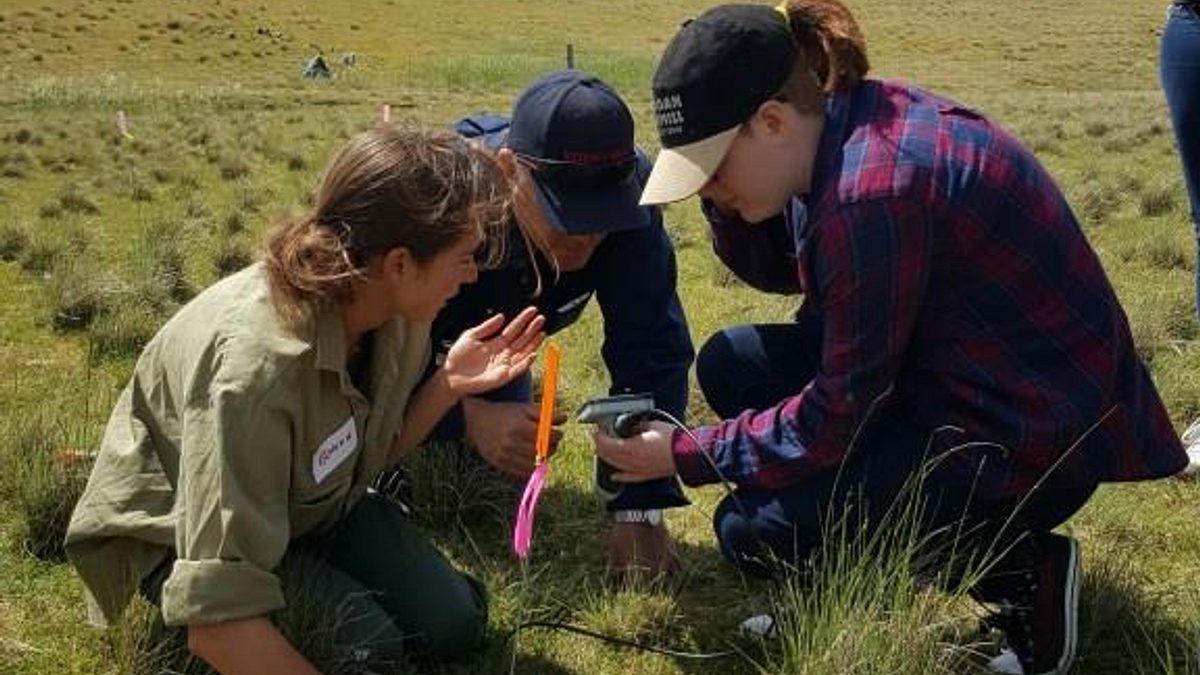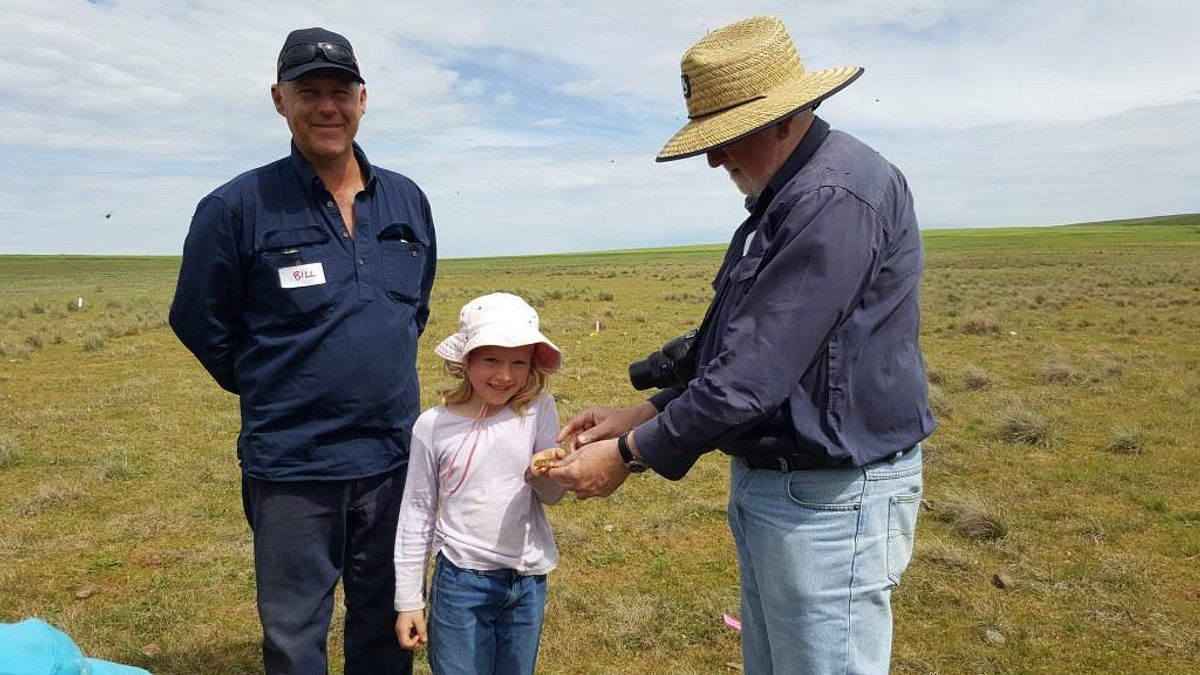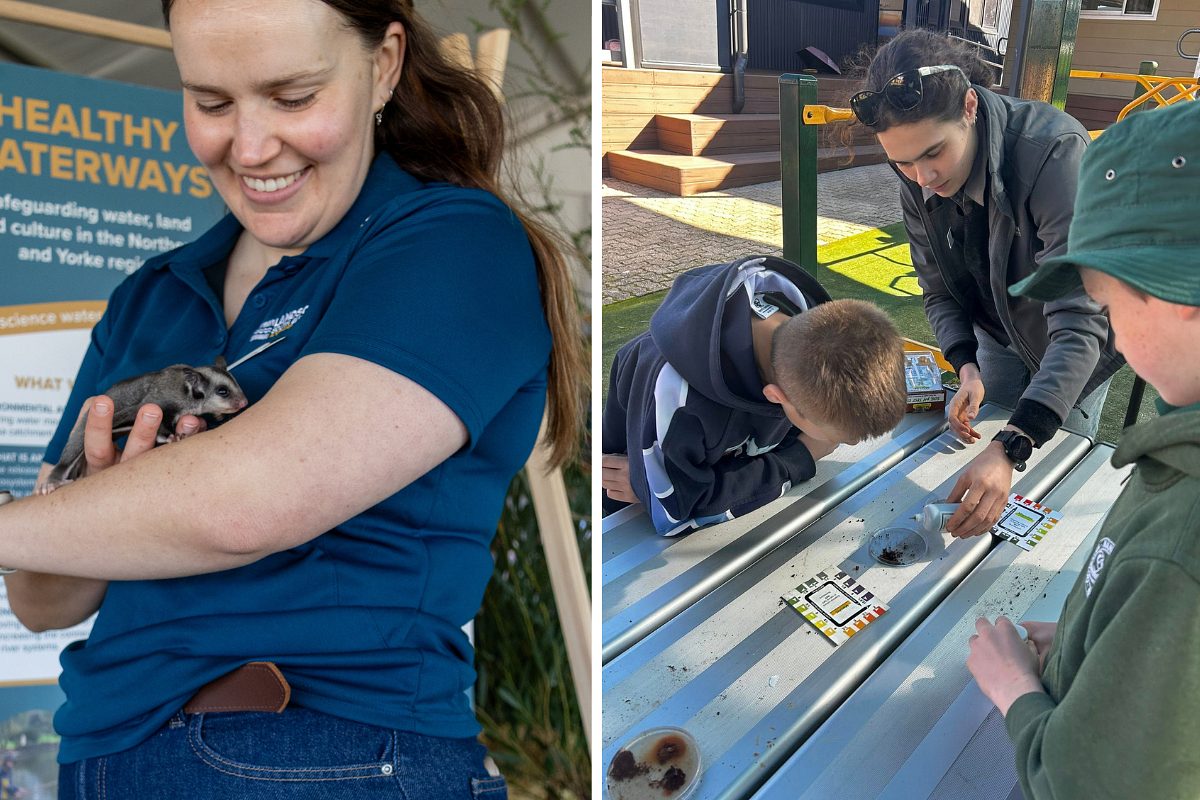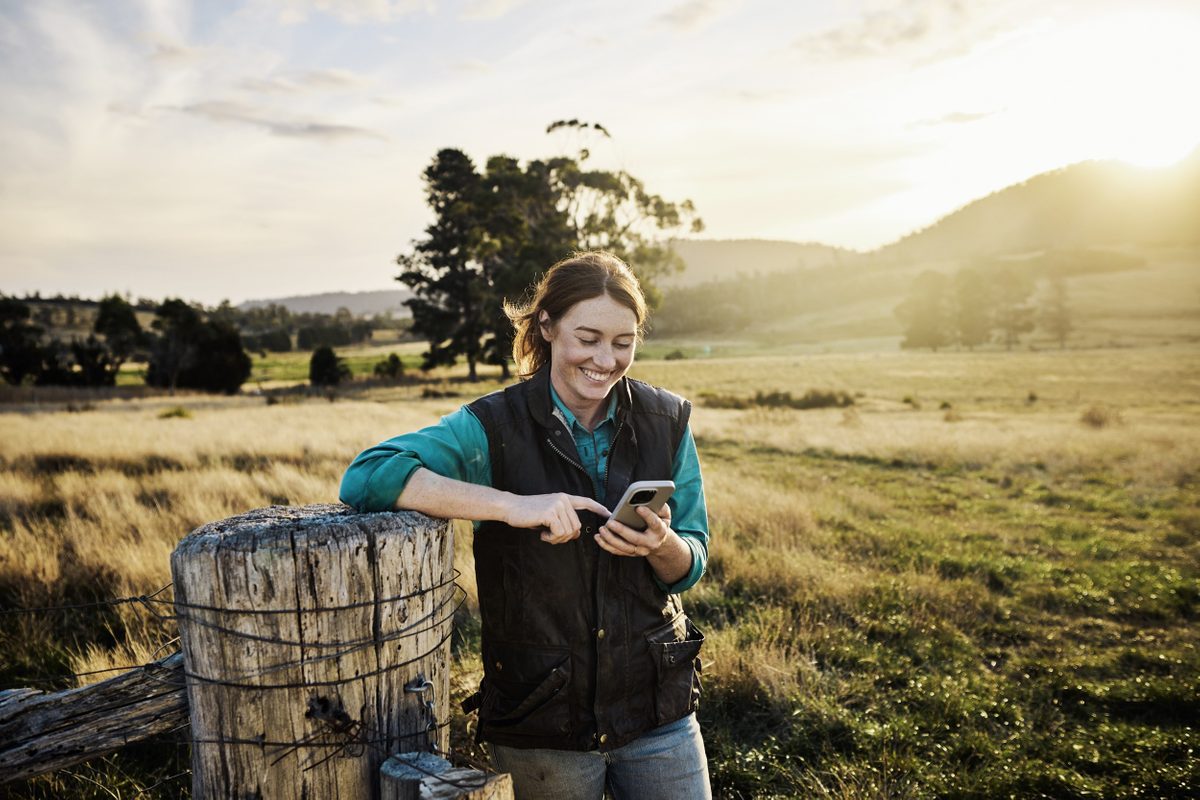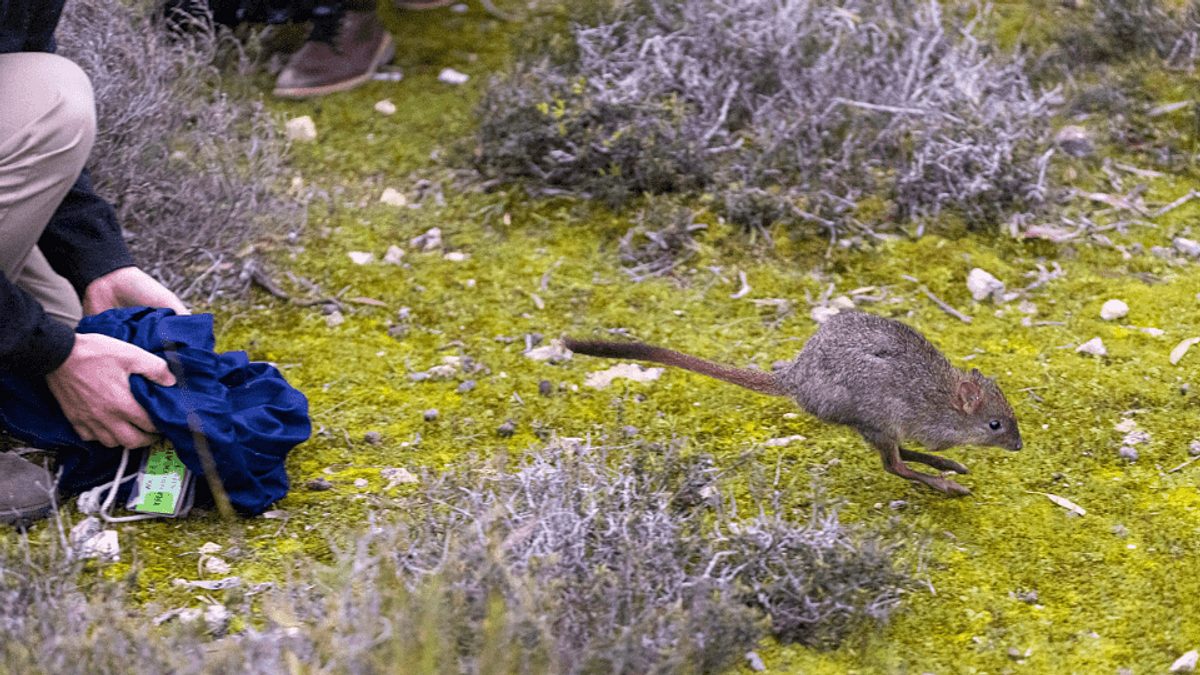Enthusiasts gather to learn and celebrate little lizard
A recent field day north of Jamestown held by the Pygmy Bluetongue Conservation Committee helped to raise awareness of Pygmy Bluetongue lizards (Tiliqua adelaidensis) and gave participants a rare opportunity to see the elusive reptile.
Chairperson of the Pygmy Bluetongue Conservation Committee Ruth Robinson hosted the field day on her property Manangari where 29 committee members, researchers, local landholders and families practised using optiscopes to search for Pygmy Bluetongues.
Natural Resources Northern and Yorke Community Team Leader and Secretary of the Pygmy Bluetongue Conservation Committee Bonnie Maynard said that the committee raises awareness of the lizard in the Mid North and Rangelands.
“The Mid North is crucial for this nationally endangered species, with 30 known populations occurring in a range extending from Peterborough in the north to Kapunda in the south,” Ms Maynard said.
“The field day participants learnt about the history of the species in the Mid North, their ecology, habitat and methods of searching for these lizards.
“Flinders University researchers and Mark Hutchinson of the SA Museum were available to discuss their current studies and the latest research on PBT’s.”
Pygmy Bluetongues are found almost exclusively on private property in sites that have not been cropped, such as hilltops where the lack of cultivation has kept burrows and native grasses intact.
Ms Robinson has known of Pygmy Bluetongues on her property for several years and is an advocate for the lizard, showing that they can co-exist with managed grazing systems.
Manangari is both a grazing property and an ideal habitat for the lizards, with bunched grassy areas and open spaces consisting of perennial species, including wallaby and spear grasses.
“Rotational grazing promotes better growth of the perennial pasture and has a better outcome for the lizards and the sheep.” Ms Robinson said.
“What’s good for the lizards is good for sheep too; not bare ground, not overgrown with wild oats, but the Goldilocks ‘just right’ in between.”
Through a grant from Natural Resources Murray Darling Basin, the PBTCC recently purchased two optiscopes, which they hope can be used by locals with potential Pygmy Bluetongue’s habitat on their properties.
The PBTCC AGM and Celebration Day will be held on 13 November at the Blyth Town Hall. This is a family friendly event and the committee and association are always keen to have new members.
For more information contact the Natural Resources Centre in Clare on 8841 3444.
